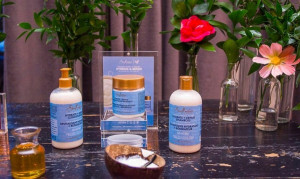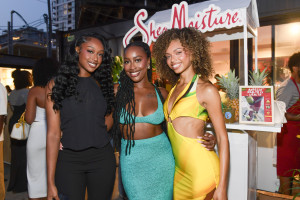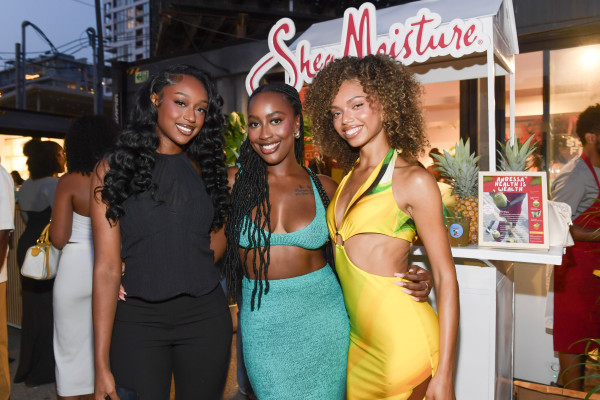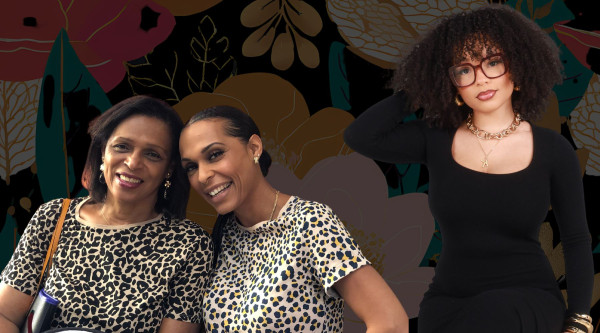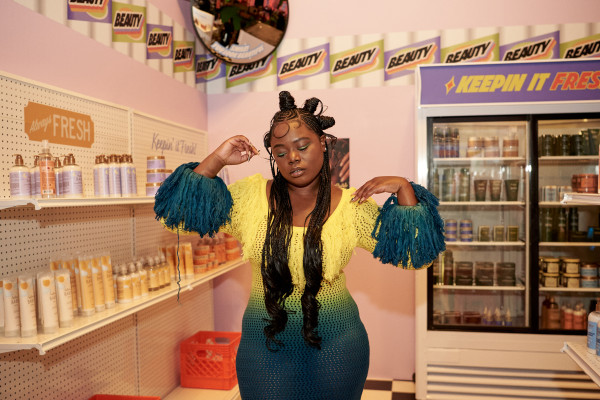Every time my aunt would utter those words, my face would get hot with anger because I knew it was a thinly veiled criticism of me. My hair texture, unlike my aunt’s, is as rebellious as my spirit. For love nor money could I get it to stay in the style my mother combed it in. It was no fault of my own, but coming home looking like, as my mother put it, “a raggamuffin” would result in one form of punishment or another.
And so it began; a resentful relationship with my hair.
Although the Black hair care industry is valued at over a billion dollars and growing, there seems to be a lack of research on textured hair and its needs. However, a team of Black PhDs and scientists at P&G embarked on their own personal hair journeys. Through that process, they created Gold Series – a breakthrough line designed to provide strength and moisture for women with relaxed, natural, or transitioning hair.
“At Gold Series, we seek to meet the needs of a wide range of hair types and have worked to ensure that we are not only creating products that meet those needs but that people can see themselves in our brand. We also know the significance that hair plays in one’s identity, self-esteem and confidence” says Lisa Reid, Commercial Operations Leader at P&G Beauty. Gold Series has partnered with Black Women in Motion (BWIM) to launch the #MyHairMyStory campaign to amplify the stories of eight Black Canadian women who share their personal hair journeys and how they are expressing their authentic selves through their hair while resetting beauty standards. The campaign beautifully displays versatility with eight Black women of varying skin tones and hairstyles; braids, straightened hair, glorious full afros, and twist-outs. All beautiful. One of the eight women who participated in the campaign is Black Women in Motion Founder Monica Samuel, who expressed her excitement about the campaign. “It’s a love letter to Black women that encourages us to embrace our hair, push through the historical trauma, and have pride in our hair’s richness, versatility, and power.”
The styles in which Black women choose to do their hair can also be a source of discourse. We dove into some of the assumptions onlookers make about Black women based on how they wear their hair. “The policing of Black women’s hair is steeped in anti-blackness,” insists Samuel. ”As are the assumptions that Black women suffer some sort of deficiency as the reason they wear wigs, weaves or extensions, as opposed to they just want to wear them, [and the idea that] our hair needs to be tamed or put in hairstyles acceptable to white and non-Black persons of colour.”
Monica points out the misconception that there’s not a lot you can do with Black hair. “Black hair is so much more than what people think because it’s so versatile,” Samuel insists, debunking the belief. “We have different density, curl patterns, and natural hair colours that you can loc, braid, curl, and colour. Black hair is not monolithic nor all the same.
Samuel hopes the campaign gets Black women to lean into their pride, authenticity, self-acceptance, and the love of themselves in their entirety. She said it is important for Black women to take up space and retell their stories, and hopes that others see the campaign and be inspired to share their own. “Black hair is diverse, intersectional, and a huge source of our magic,” says Samuel. “Black women are more than a footnote in the hair care industry, and it’s time we take our place at the forefront.”
The support from Gold Series will continue beyond the campaign.
“In addition to partnering on #MyHairMyStory, our $100,000 donation will also go towards supporting the amazing work BWIM is doing to create culturally relevant content, educational tools, healing spaces and economic opportunities for Black women in Canada,” announces Reid. “Programs like the Love Offering Community Emergency Relief Fund, which works to provide urgent relief to Black women, non-binary, and gender non-conforming people experiencing food and income security, are filling urgent needs during the pandemic.”
One of the brilliant minds behind Gold Series, Dr. Rolanda Wilkerson, P&G Principal Scientist, realized as scientists both she and her team needed to do more for textured hair. Through in-depth research and hair harvesting studies, they were able to compare the needs of Black hair versus hair of other textures, pinpointing key differences between the two. Beyond the innovative technology, the team became inspired by their unique hair journeys to develop the special line of products that deliver benefits to care for, style, and maintain Black women’s hair. Whether your hair is natural, relaxed or transitioning, Gold Series caters to the needs of women with textured hair and offers them moisture, shine, and strength, to help manage and maintain their hair.
Another participant in the video series, Monique Taylor-Yee Shui, is a DIY expert and media personality who appeared in the campaign with her two daughters. As a mother myself, I know how important it is to pass on a positive self-image to our children. Both Shui and her daughters are models who are often in the public eye. “It plays into a lot actually, and it comes down to my upbringing where a lot of attention was paid to my hair,” answers Monique when asked how much of her self-image is linked to her hair. “Growing up in a predominantly white neighbourhood, my mother would always ensure my hair was done, be it in braids or twists, and that it was always pulled together.” Shui, who loves her hair with more volume and texture, embraces the beauty and versatility of it. “I know young people are looking at me and seeing a representation of themselves on screen,” she says, aware of her influence.
Shui’s daughter Savannah, the eldest of the two, rocks her big gorgeous ‘fro, while Sydney, the youngest, lets her ginger curls fall freely; the perfect picture of the diversity of hair in the Black community. I asked Shui how she ensures her daughters, who are very active in an industry that is in part to blame for the distortion Black women have about what’s beautiful and acceptable, remain self-assured and confident. “It’s all about reinforcing positivity,” says Shui, confidently. “I’ve been able to teach them to embrace their hair by understanding the versatility of it.” Shui expressed pride over her daughter’s incredible confidence. Both are in love with their hair and have never wanted it different than their own.
Thinking back now on my aunt’s mantra of “a woman’s hair is her glory”, I have a different perspective. As a child, I considered it a yoke and a hindrance to my free-spirited nature. The #MyHairMyStory campaign has me thinking about how I can recontextualize what my aunt said.
Monique Taylor-Yee Shui told her daughters their hair was magical. She believes there is great power in our hair. Dr. Rolanda Wilkerson speaks of the sorority; a Black hair sisterhood of shared experiences. I am so thrilled that we are finally taking up space, stepping to the forefront, and celebrating the versatility and diversity of Black hair. Whether you are like my wonderful late aunt who is in the beauty salon every Saturday, or you are like little Angelina, who wants nothing more than to have the wind blowing through your curls, your hair is beautiful, magical, and glorious.
To watch the full video series and learn more about the #MyHairMyStory campaign, check out www.goldseries.ca.
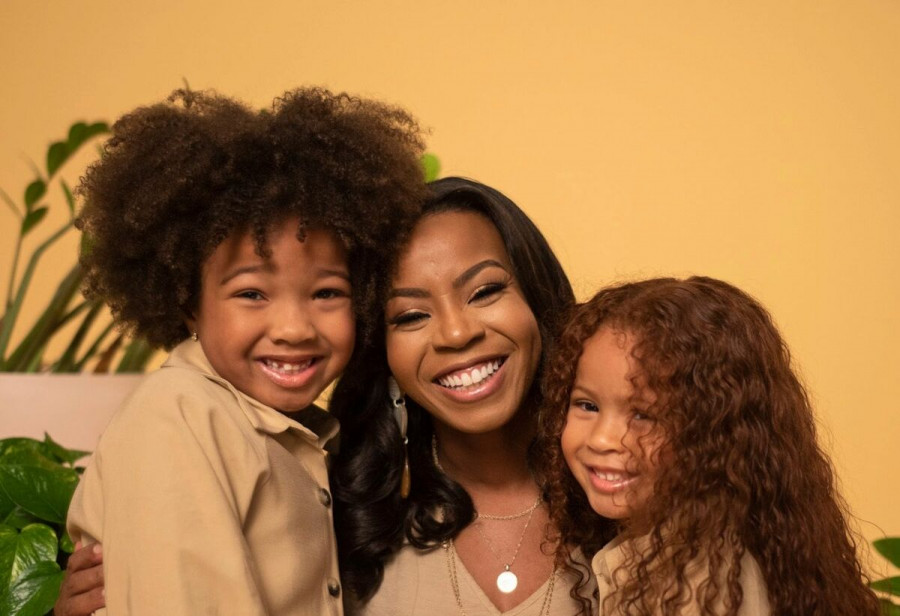
 By
By 




